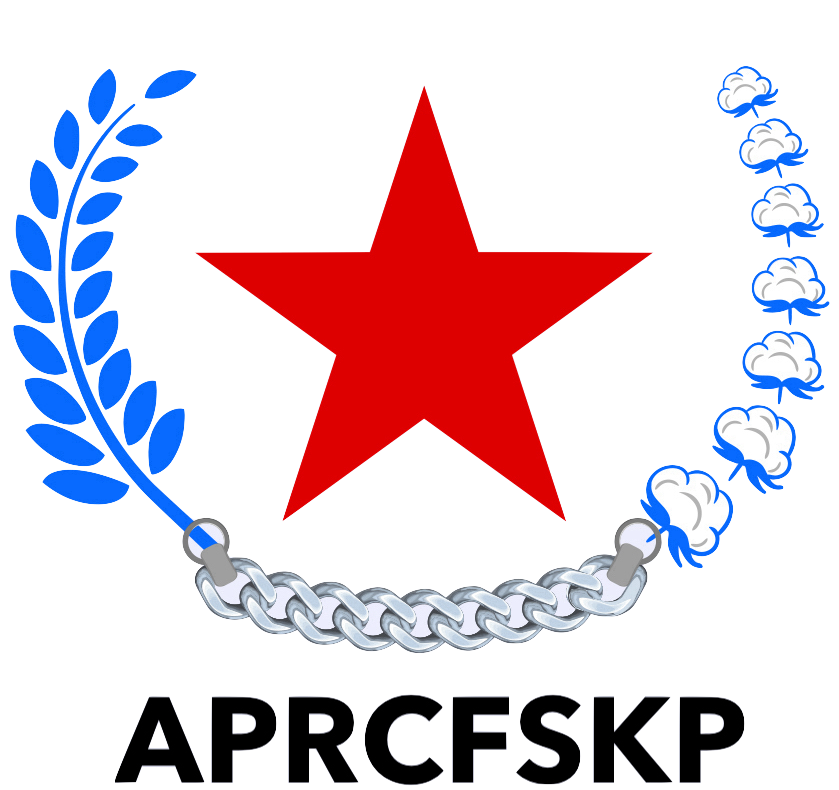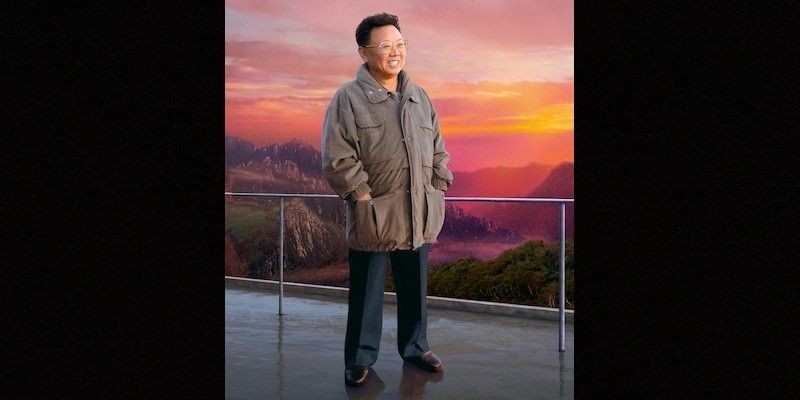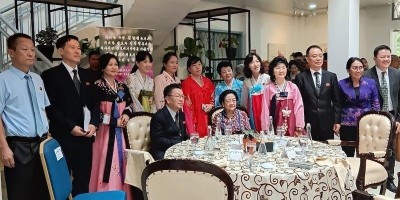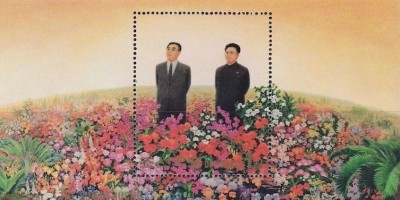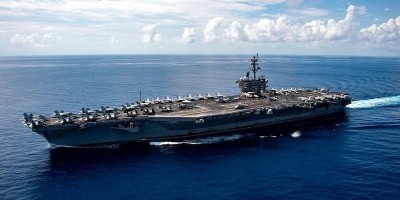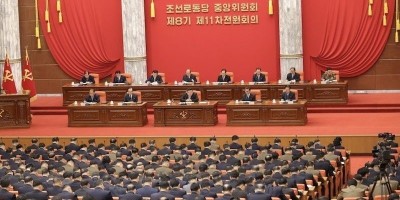Son of Guerrillas
The people of the Democratic People’s Republic of Korea call Kim Jong Il (1942-2011), eternal Chairman of the National Defence Commission of the DPRK, a son of guerrillas.
The whole life of the Chairman, who was born in the family of guerrillas and grew up among the anti-Japanese guerrillas, is permeated with their soul and mettle.
Unexcelled Courage and Mettle
The anti-Japanese guerrillas of Korea were unusual in their courage and mettle, for it had been inconceivable for a small number of them armed with light weapons to fight against Japan, self-acclaimed one of the five major powers in the world at the time, with no state to support it in the rear or the backing of a regular army.
Born as a son of Kim Il Sung (1912-1994), commander of the anti-Japanese guerrillas, and of Kim Jong Suk (1917-1949), the anti-Japanese war heroine, Kim Jong Il grew up among the guerrillas, learning their courage and mettle.
The world still remembers the Pueblo incident. In January 1968 the US armed spy ship was captured by the DPRK.
Feeling ashamed that one of its warships had been captured for the first time in its history by the small country, the United States dispatched three aircraft carriers including a nuclear-powered one, threatening the country with nuke.
At the time President Kim Il Sung asked Kim Jong Il to make a decision on how he would deal with the ship if he were the Supreme Commander of the Korean People’s Army. Kim Jong Il stated firmly that he would never release the crew unless the United States submitted a letter of surrender, that even if it presented such a letter, he would not return the ship as it was his country’s trophy.
The US administration submitted a formal letter of apology, in which it acknowledged its acts of espionage.
During the whole period of nuclear confrontation with the United States, Kim Jong Il never made a concession or compromise; in March 1993, the United States attempted to enforce “forced inspection” of the DPRK’s nuclear facilities, picking a quarrel with its “nuclear issue,” and made public that it would conduct the largest-ever Team Spirit exercise, a nuclear war game, with the south Korean army; his country declared its withdrawal from the NPT to defend its sovereignty and dignity, and the United States sent a letter of assurance in the name of its president.
In order to put an end to the nuclear blackmail, Kim Jong Il turned his country into a powerful nuclear state.
Today the DPRK has become a world-class military power which no one dares to provoke; the credit should go to the solid foundations of its defence industry, which Kim Jong Il laid with courage and mettle in his lifetime.
Outlook on Life
“Live not merely for today but for tomorrow!”–this was Kim Jong Il’s outlook on life.
This was also an outlook on life cherished by the anti-Japanese guerrillas when they were fighting in the wilderness of Manchuria for over ten years with a belief in the liberation of their country when the militarist Japan was in high spirits, expanding its aggression to the Chinese mainland and to the Pacific.
This happened in 1998, when Kim Jong Il was passing by a village in a province.
Seeing the farm field composed of small patches, he said that he had long been giving thought to land realignment, unfolding his plan to have all the crop fields in the country into large-scale, standardized ones.
In those days his country was experiencing serious economic difficulties owing to the collapse of socialism in the East European countries and the natural disasters that hit it for several consecutive years; it was in need of a large sum of money every day even to surmount the economic difficulties and shortage of food. But with an eye into the distant future, he had the large-scale project launched to realign the crop fields across the country into standardized ones. This was not all. Under his guidance many scenic places and spots, like Mts Kuwol, Chilbo and Ryongak and Ryongmun Cave were developed into pleasure grounds for the people.
His outlook on life enabled his country to overcome the harshest-ever period in its history and open a wide road for building a powerful socialist country.
People’s Leader
To love the people ardently, respect them as his teacher and make devoted service for them was the ennobling traits Kim Jong Il cherished as their leader.
Whom he saw every day in his childhood were the anti-Japanese guerrillas, who were respecting the people and fighting for their interests wherever they were, saying that as fish cannot live without water, so they could not live without the people and dedicating their lives without hesitation. His parents would teach him to love the people and devote himself for the good of the people.
Born in a simple log cabin, the first clothes he wore were those his mother made by shortening her military uniform, and the first quilt was a patched one the women guerrillas made by gathering bits of cloth and patching them together. He had to overcome all sorts of difficulties, experiencing the shortage of food with the guerrillas. This was why he led a frugal life all his lifetime and was always ready to face any difficulty if it was for the good of his people.
In the last days of his life he was suffering from a serious disease caused by excessive mental and physical fatigue, but he worked energetically, not revealing the state of his health.
In December 2011 when he was about to go on an on-site guidance trip, doctors and officials, out of their concern for his health, tried in tears to dissuade him from doing so. But he dug in his heels, saying: I still have many places to visit; it is only when I visit them that the flames of victory will flare up across the country and the people will become better-off; please take care of your own health so that you would not fall ill.
He then left, and no one knew that it would be his last on-site guidance trip. He breathed his last on the train running for the wellbeing of the people. 
